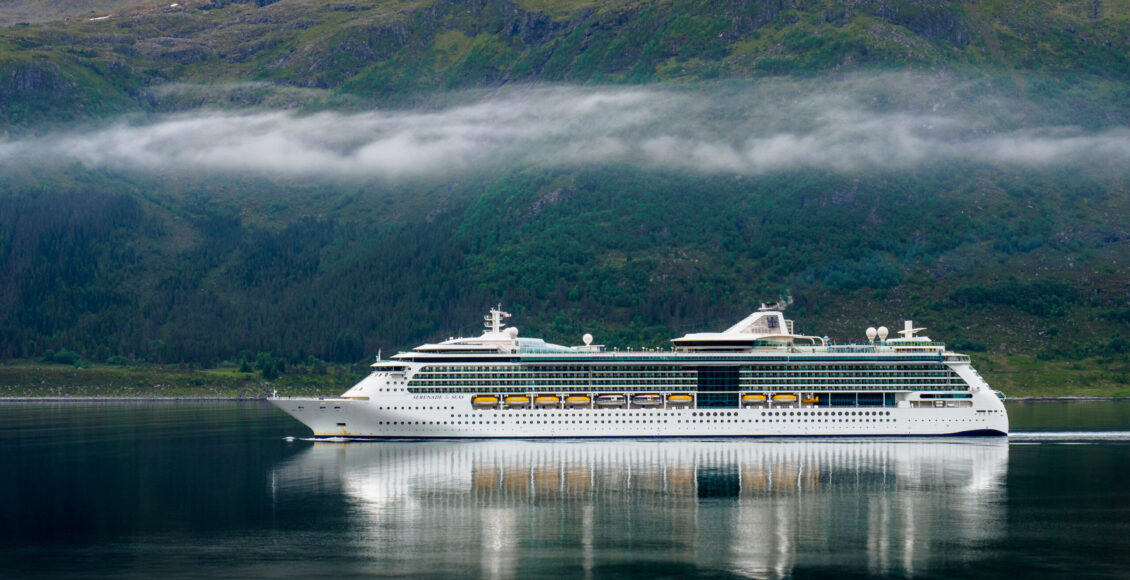The Inside Scoop on the Ultimate World Cruise

Anchors aweigh! On December 10th, 2023, the Royal Caribbean Ultimate World Cruise embarked from Miami on a 274-day voyage, marketed to reach all ‘four corners of the world,’ including 65 countries and 11 World Wonders. Initially pitched by the Royal Caribbean International President as a way for customers to “make up for lost time” travelling due to the COVID-19 pandemic, this cruise took social media by storm. Even before setting sail, it created influencers of the cruisegoers and those who took to the web to comment or critique on the trip. As the days went on, it took a negative turn as TikTok flooded with reports of diseases, racism, and even a sort of cruise status classism, to name a few.
This nine-month journey takes place aboard Royal Caribbean’s 20-year-old ship, the Serenade of the Seas. For reference, cruise ships usually only stay in commission for around 30 years, and often host much cheaper cruises as they become outdated and their value depreciates. The Serenade of the Seas can accommodate up to 2,476 guests; however, many on board elect to stay on only one of the four legs of the cruise: the Americas, Asia Pacific, Middle East & Mediterranean, and Europe & Beyond. For the entire journey, pricing ranges, per person, from $53,999 USD to $117,599 USD ($72,761 CAD to $158,459 CAD), not counting taxes, fees, and port expenses that amount in the thousands.

“Serenade of the Seas” by golightj Golightly under PDM 1.0 DEED
After setting sail, this voyage quickly picked up traction across the internet, most notably on TikTok. Some onboard, such as sisters Brandee Lake and Shannon Marie, or Brooklyn Schwetjie and Amike Oosthuizen, began documenting their experiences, giving tours of the ship, and talking about how exactly they found themselves on this unique trip. Quickly, they started gaining hundreds of thousands of followers and millions of views as people began following their journey. On land, popular critics and commentators, such as Marc Sebastian and Christian Hull, began raking in millions of followers and even more views on TikTok videos related to the cruise – these videos became so widely circulated that publishing company Atria Books (under Simon & Shuster LLC) sent Marc onboard the cruise to report his experiences and read one of their published books, organizing a virtual book club. People were even posting bingo cards online, predicting events or drama that could potentially emerge, effectively cheering on conflict.
The “nine-month cruise” is one of many unique events that has captured the attention of the TikTok crowd. It is specifically being compared to ‘BamaRushTok,’ which captured hundreds of girls going through the recruitment process for sororities at the University of Alabama and other southern universities in general. Having many participants documenting their experiences creates ample content to discover and dissect for the outside audience. As one self-titled TikToker, “SeaTea Director” posted, “If something big goes down, I want to hear from different people, different angles, different perspectives.” It is for this reason many people are referring to this trip and its documentation as a “TikTok reality show” that will unfold throughout the cruise. Assistant Professor of Digital Media at the University of Alabama comments on the phenomenon of wishing drama into the actual lives of those posting on TikTok as extremely damaging and stressful to those who are now being treated as reality TV figures. Reality TV has become increasingly curated and scripted, and perhaps consumers are craving real, true chaos. While it is important to be aware that there are real people behind the screens, it begs the question of whether they are signing onto being a part of this spectacle by posting in the first place.
https://twitter.com/notcapnamerica/status/1738621002454577415
The cruise’s reception and perception on TikTok ultimately fits into a larger morally gray conversation about privacy in the digital age as a content creator—while everyone has a right to privacy, in a scenario where one’s social media content overlaps with their private vacation, how can others be blamed for violating that privacy? Is the audience given the green light to cheer on conflict, as people do for shows such as Love Island or Below Deck, once the content has been opened up to the public? As author Patrick Lenton explains to the Guardian, “There’s something truly intoxicating about watching rich people eat it while trapped on big boats.” Perhaps by posting about their cruising experiences, these “influencers” are opening a door to observations and commentaries that cannot be closed.
Observers ashore have speculated on the ship’s potential as a “floating arena for high-level drama,” with people commenting on it as a new Hunger Games or remarking, “It’s gotta be a social experiment.” Joe Martucci, a retiree who runs the account @spendingourkidsmoney with his wife, has spoken about how he worries that certain fans are intentionally trying to start drama and are “trying to manufacture something” that isn’t there for the gain of views and followers. This scenario leads to a reality where, even if the conditions are relatively mundane onboard, media audiences will drum up drama and stories that will spread just the same. Is the cultural infatuation really with those on the cruise documenting their experiences or with those who report on the gossip and happenings of the ship from land? As the online hype dies down, it may soon be clear whether or not the cruise itself was truly the rumour mill or whether the audience was blowing up stories, real or fake, to gain more traction for themselves.
Edited by Lily Molesky.
Featured image: “Serenade Of The Seas-170610-028- FLICKR” by Knut Erik Haaheim under CC BY-NC-SA 2.0 DEED.
